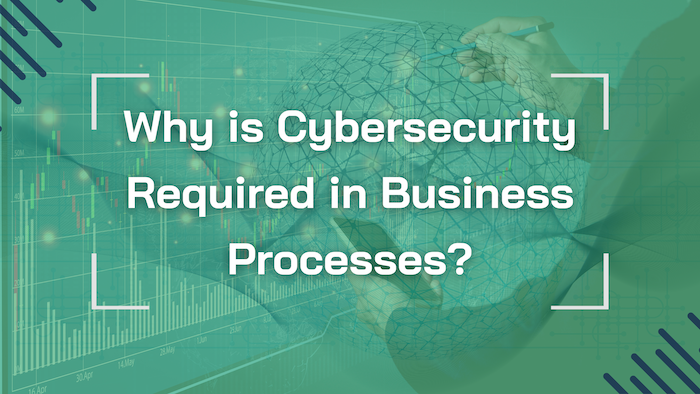Cybersecurity is no longer optional. It is, in fact, a necessary element for businesses of all sizes. The threat landscape has evolved to where no company (or individual) is safe from cybercrime. By incorporating cybersecurity in the business process, companies are ahead of the curve and are better prepared in the face of cyber-attacks.
Why is Cybersecurity Important for Business Processes?
The increasing risks of cyber-attacks and data breaches make cybersecurity essential, especially as technology continues to advance. With more businesses shifting to the cloud or hybrid work environments, corporate, client, and customers’ sensitive information becomes even more vulnerable to hackers than ever before.
Companies without a robust cybersecurity solution are defenseless against the myriad of daily threats. Basic antivirus software or a firewall is no longer powerful enough to keep threat actors out.
What is Cybersecurity?
Cybersecurity is the practice of preparing for and protecting a company’s digital assets from unauthorized access and cyber crime. A cybersecurity solution consists of many layers of protection in various areas of business. For example, a typical cybersecurity program may include the following:
-
Network security
-
Information security
-
Access control
-
Infrastructure and hardware security
-
App security
-
Cloud security
-
24/7 Monitoring
-
Incident response
-
Cybersecurity awareness training
-
Disaster recovery
How Cybersecurity Helps Your Business
Cybersecurity must be threaded deeply within each business process to be effective. Some of the ways this can help your business are:
Data Integrity
Weaving cybersecurity into your daily processes increases your data integrity, ensuring that your information is consistent and accurate. It also prevents unauthorized access or unwanted changes to your data.
Controlling access is one of the most effective ways to ensure data integrity. The zero-trust model works by giving access to your most valuable resources only to those people who need to use them to perform their job. Multi-factor authentication can keep threat actors out by forcing multiple verification parameters before providing access and ensuring Data Integrity.
Availability
A solid cybersecurity practice also ensures that your data and systems are available to authorized users 24/7. Cyberattacks can leave a company cut off from its information and systems, and too much downtime could affect your business operations.
Confidentiality
Confidentiality is paramount to customer loyalty and trust. Cybersecurity helps protect your sensitive information (financial data, intellectual property, trade secrets, customer data, personal information, etc.) against unauthorized access, theft, ransom, and destruction ensuring the confidentiality of information.
Reputation
Data breaches and the risk of identity theft can negatively impact a business’s reputation, which may lead to a loss of trust, decreased customer loyalty, financial loss, and in some cases, business closure.
Cybersecurity can help you avoid these incidents, thus ensuring your company’s reputation and reliability.
Attack Prevention
Social engineering attacks have become one of the most powerful tools used by hackers. Therefore, a thorough cybersecurity program will focus on training employees on what to look for and how to respond to suspicious emails or text messages to avoid costly attacks.
How to Protect Your Business
Cybersecurity is not something to take lightly, and most companies do not have the workforce or expertise to do it themselves. Trust the professionals to audit your business and develop a comprehensive cybersecurity system to protect your entire company.
Contact Socium Solutions today for help protecting your valuable business assets.

